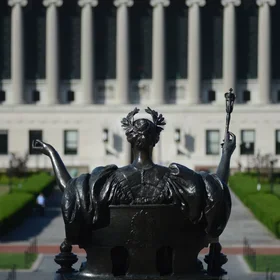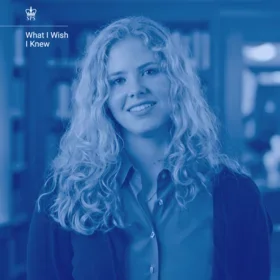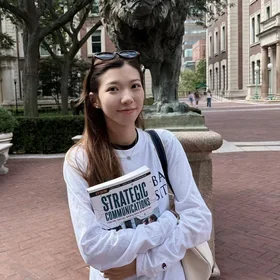This March, five Sports Management students won Challenge 3 in the SportsPro Hackathon 2023. The team: Christina Chen (’24SPS), Daniel Angel Manzi (’23SPS), Hernan David Gonzalez Ramirez (’24SPS), Naoya Kanno (’23SPS), and Pablo Aycart Joya (’24SPS). In the SportsPro Hackathon, students from across the world compete to “create innovative solutions that could help the sports industry drive social, financial, and environmental change, [while] also being mentored by the top thought leaders within the industry.”
The winning team reflected on their experience:
How was the event?
Manzi: The event was great! It was a global sports Hackathon where 17 other schools/teams competed to tackle one of three challenges provided by SportsPro. We had mentorship sessions with industry executives throughout.
How did it work? What did you have to do?
Manzi: We were given 48 hours to develop a solution that addresses the triple bottom line (planet, people, profit). We were allowed to decide on one out of three challenges, and we ended up selecting the third one: to develop a sustainable, scalable, and profitable legacy system that could be applied for the 2036 Olympics in Copenhagen—and taken to other sporting events thereafter—focusing on fan engagement and community development.
Can you tell us a bit about your idea?
Manzi: Essentially, we developed a system that would promote sustainable beverage consumption, beyond sporting events. To do so, we’d provide RFID-enabled containers that can be refilled at our refill stations throughout the venues. As users refill their containers, they earn reward points and can use them at local team stores, museums, parks, or even public transportation.
What enticed you to want to participate?
Aycart: When I joined the Sports Management program at Columbia, I wanted to maximize every opportunity that was given to students, and when I received the email about the Hackathon, I thought it was a cool event and a way to participate with my peers in the program.
Chen: For me, I’m particularly interested in sustainability, sports, and entrepreneurship, so the Hackathon gave me an opportunity to get exposure to all of those aspects and be able to work with a team and peers who I really enjoy working with and inspire me. That really got me excited.
Gonzalez: I actually didn’t know that the Hackathon had to do with sustainability initially. However, as Pablo mentioned, my intention from the moment that I arrived here at Columbia was to capitalize on every opportunity that came my way.
What were important factors or resources that helped with your project?
Aycart: The app that we used was called Swapcart. It was really organized. We had events and mentors, and we had different tabs to go to. One of them was “student resources,” and they would put websites on there that could aid us along the way with our project.
Gonzalez: We were also appointed mentors who guided us, and I think that was the key to our final idea, because we went back and forth with ideas and we changed our challenge idea a couple of times. So speaking with the mentors was actually really good input for our final outcome.
Chen: The visibility of our mentors and organizers who were willing to share our posts on LinkedIn also gave us more exposure, including our professors and people from SportsPro, so we really appreciate that.
What lessons have you learned from this experience?
Aycart: Collaborate and participate with each other. Be selfless, because we all have different thoughts, and cooperate in the best possible way and come up with a solution. We have to respect each other’s opinion and come to a middle ground between all of us to succeed.
Chen: Being open-minded and integrating our own opinions with others—and that’s how we produced an outcome that we are all happy about.
Gonzalez: Also, I think that this Hackathon helped us to try to perform in the best way possible under pressure, because we only had 48 hours. So it was not easy to go and work under pressure, coordinate everything, come up with a final idea, and so on. I think it really helped us get better at working under pressure.
What are the next steps?
Aycart: We are actually waiting to hear back from SportsPro to follow up with the next steps. We received feedback from the mentors and the judges. Now we have to improve on our idea so that we are ready to perform and present it better when the final presentation comes at SportsPro Live. We are also presenting at SPS Innovation Day with Columbia in April.
Gonzalez: The SPS Innovation Day at Columbia will help us to improve our presentation in anticipation of SportsPro Live, so I think it will be a great opportunity.
About the Program
The Columbia University M.S. in Sports Management provides students with a comprehensive curriculum and access to sports industry practitioners and influencers. Students acquire skills in areas such as entrepreneurship and innovation, global sports management, facility and event management, and sports law and ethics.
The fall 2023 application deadline for the M.S. in Sports Management program is May 17. Learn more here.


